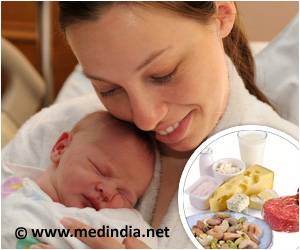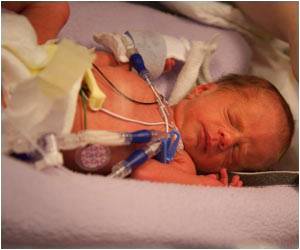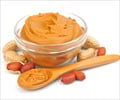The volume of carbohydrates, proteins, lipids and calories consumed by very vulnerable preemies significantly contributes to increased brain volume and white matter development, found study.

‘The volume of carbohydrates, proteins, lipids and calories consumed by very vulnerable preemies significantly contributes to increased brain volume and white matter development.’





The research team at Children's National Health System enrolled 69 infants who were born younger than 32 gestational weeks and weighed less than 1,500 grams. The infants' mean birth weight was 970 grams and their mean gestational age at birth was 27.6 weeks.
The newborns underwent MRI at their term-equivalent age, 40 weeks gestation. Parametric maps were generated for fractional anisotropy in regions of the cerebrum and cerebellum for diffusion tensor imaging analyses, which measures brain connectivity and white matter tract integrity. The research team also tracked nutritional data: Grams per kilogram of carbohydrates, proteins, lipids and overall caloric intake. "We found a significantly negative association between fractional anisotropy and cumulative macronutrient/caloric intake," says Catherine Limperopoulos, Ph.D., director of Children's Developing Brain Research Laboratory and senior author of the research. "Curiously, we also find significantly negative association between macronutrient/caloric intake and regional brain volume in the cortical and deep gray matter, cerebellum and brainstem." Because the nutritional support does contribute to cerebral volumes and white matter microstructural development in very vulnerable newborns, Limperopoulos says the significant negative associations seen in this study may reflect the longer period of time these infants relied on nutritional support in the NICU.
Source-Eurekalert















